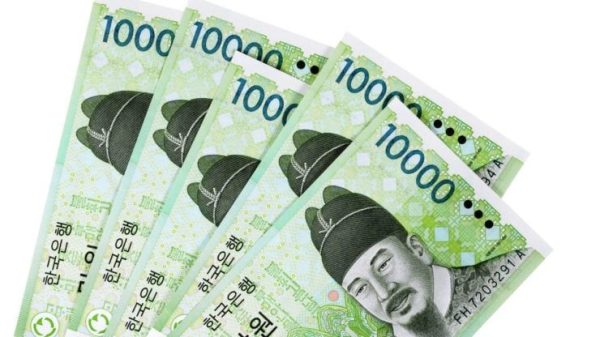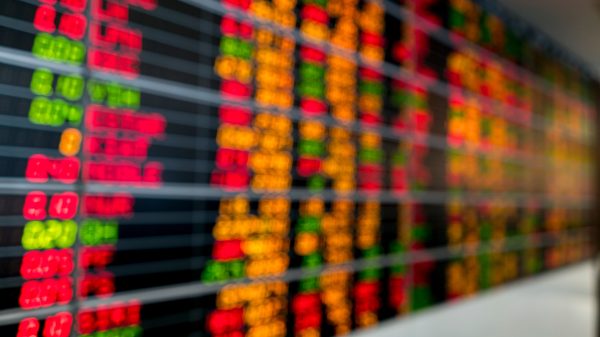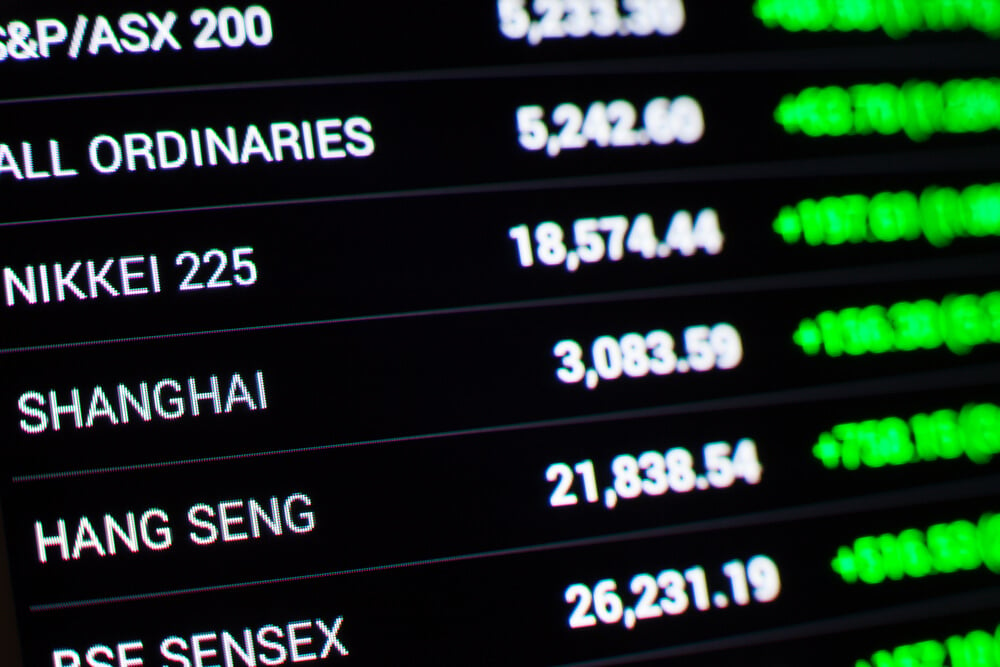BOJ’s Policies Impact on Asian Stock Markets
Asian stock markets mostly fell on Friday as investors responded to hawkish comments from the Bank of Japan and mixed inflation data. Meanwhile, attention shifted to the upcoming speech by the Federal Reserve Chairman.
Wall Street led the way weakly into the weekend, with steep overnight losses triggered by a sharp selloff in technology shares and an upturn in Treasury yields. With all eyes on Federal Reserve Chair Jerome Powell’s speech at the Jackson Hole Symposium on Friday, US stock futures rose during Asian stock market hours.
Powell’s speech is being delivered as confidence in the Fed’s September interest rate reduction grows. However, indications of a slowing labour market also increased worries about a US economic slowdown, reducing risk tolerance this week.
Japanese stocks fell, reacting to hawkish remarks from the Bank of Japan (BOJ and mixed Consumer Price Index (CPI) data. The TOPIX and Nikkei 225 indexes both dropped by approximately 0.2%. This decline is likely to result in a lackluster end to the week for these indexes, further delaying their recovery from losses earlier in August.
At a parliamentary hearing, BOJ Governor Kazuo Ueda stated that interest rates should rise more to attain a neutral level, as he still views them as extremely low. Following the BOJ’s rate hike during a meeting at the end of July, Ueda also reaffirmed his intention to increase interest rates even more if inflation stayed stable.
However, July’s inconsistent consumer price index inflation data cast doubt on Ueda’s remarks. The data indicated that rising wages and better consumer spending caused CPI inflation to increase.
Asian Stock Market News
Asian stock markets today broadly weakened, with most indices across the region falling. This decline signals a poor weekly performance as the recovery from early August losses stalled. The downward trend was particularly pronounced in technology stocks, mirroring the losses seen on Wall Street.
In South Korea, the tech-heavy KOSPI dropped 0.5%. Hong Kong’s Hang Seng index fell more steeply, shedding 0.9%, dragged down by significant losses in Chinese internet stocks. Chinese mainland markets continued to struggle, with the Shanghai Composite and Shanghai Shenzhen CSI 300 indexes trading flat to lower on Friday. These Chinese indices, hovering near six-month lows, are expected to end the week down by about 1%.
Japanese markets also faced pressure. The TOPIX and Nikkei 225 indexes both declined, affected by mixed signals from economic data. While inflation readings were mixed, underlying inflation – a key metric for the BOJ that excludes food and energy prices – fell short of the bank’s 2% annual target. This data raised questions about the BOJ’s capacity for future rate hikes, adding uncertainty to the market outlook.
In other parts of the region, Australia’s ASX 200 dipped 0.3%. India’s market showed some resilience, with futures for the Nifty 50 index indicating a slightly positive open, though the index is expected to face resistance at the 25,000 level.
The cautious sentiment across Asian markets was partly influenced by anticipation of upcoming earnings reports from major tech companies. Notably, investors are awaiting next week’s earnings report from NVIDIA Corporation, a market favorite, which has contributed to the overall cautious approach.
This regional downturn reflects broader global market trends, with Asian tech stocks particularly sensitive to movements in their American counterparts. As the week concludes, most Asian markets are poised for subdued performance, struggling to regain ground lost earlier in the month.
Chinese Stock Market Recovery
China’s stocks recovered after losing three straight sessions. The Shanghai stock exchange soaring by 0.28% to 2,856.73 points by midday. The financial sector saw gains, rising 1.39%, which supported the 0.57% increase in the blue-chip CSI300 Index.
Conversely, the Hang Seng Index in Hong Kong fell 0.41% to 17,569.38, indicating a general sense of unease in the region as investors await Powell’s address at the central bank gathering in Jackson Hole, Wyoming.
China’s varied performance, with equity markets leading profits and healthcare trailing, demonstrates the disparity in investor confidence across sectors. The Shenzhen stock exchange is open at a 0.23% increase, while the tech-focused STAR50 dropped 0.69%. This highlights the divergent signals from various indices, highlighting the difficulty of navigating the current market conditions.
Weak consumer spending and other economic problems like a protracted housing slump and high unemployment rates are challenging China’s economy.
The Chinese government must implement policies that increase spending and help rebuild consumer confidence. Economic slowdown and geopolitical tensions led foreign investors to withdraw nearly $15 billion from China in Q2 2023.
Chinese businesses have been sending more money abroad, especially for projects like electric car manufacturing and battery factories. In Q2 2023, they sent a record $71 billion abroad, over 80% more than the previous year.
Asian Economy News Today
The world’s most populous continent, Asia, has experienced exceptional economic growth recently. Numerous factors, such as increased technological and innovation breakthroughs throughout the region, drive this growth spurt. Several of the world’s most significant and valuable corporations are based in Asia.
In 2023, the economies of Asia constituted two-thirds of global growth, according to an IMF report. The area should expand by 4.2% in 2024 after growing by 4.6% in 2023. In 2024, the growth momentum is diminishing due to the obstacles posed by China’s structural pullback and a less robust than anticipated economic rebound in the region.
Domestic demand and encouraging policies like fiscal spending, tax breaks, and monetary easing helped China’s economy recover in 2023. Nevertheless, a faltering external demand and a struggling real estate sector should cause growth to drop to 4.6% in 2024. Looking ahead, lower efficiency and an ageing population will cause long-term growth to drop 3.5% by 2028.
Japan’s economy performed better than anticipated in the 2nd quarter of 2024. Japan’s GDP increased by 0.8% on a quarter-over-quarter basis, above the 0.5% increase predicted by analysts. This growth represents a reversal compared to the 0.6% decrease in the first quarter.
The GDP grew by 3.1% annually, exceeding the 2.1% growth estimate. Japan’s GDP fell 0.8% year-over-year for the second straight quarter, following a 0.9% decline in the first quarter.
Despite this, the Topix and Nikkei 225 indices rose slightly on August 14 due to positive quarterly growth. Additionally, the Japanese yen marginally appreciated versus the US dollar.
Asian Stock Market Summary
As the global financial markets adjust to recent developments from BOJ, the focus shifts to the upcoming Feds Chair Jerome Powell’s speech at the Jackson Hole Symposium.
With Asian markets reflecting concerns over the Bank of Japan’s recent hawkish comments and mixed economic data, the Tokyo Stock Exchange has seen notable declines during regular trading hours.
Market participants await real-time updates from Powell’s address to gauge future monetary policy directions. As the closing bell approaches, the impact of these speeches and economic indicators will be crucial in shaping the trajectory of the United States and Asian financial markets.
The post Asian Stock Market Declines Following BOJ’s Comments appeared first on FinanceBrokerage.























